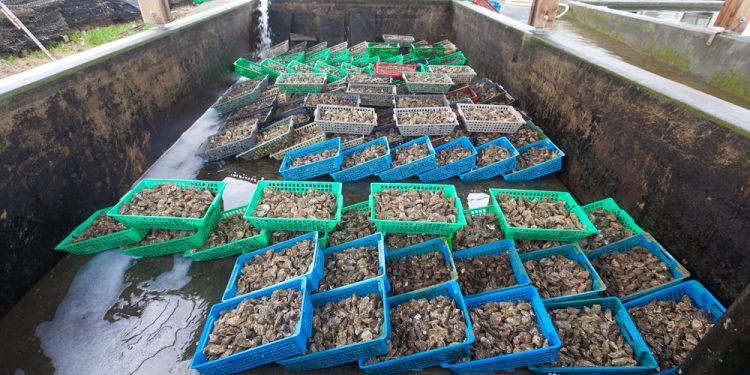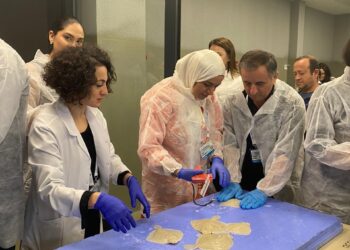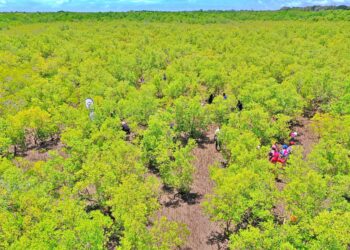Pollution and climate change threaten oyster farms – Oyster farms around the world are facing increasing challenges due to pollution and climate change. These environmental factors are negatively affecting oyster health, farm efficiency and the long-term sustainability of this essential activity for many coastal economies. We examine the main problems caused by pollution and climate change, supported by authoritative sources.
Pollution and oyster farms
Water pollution is a major threat to oyster farms. Harmful chemicals from agricultural, industrial and urban activities accumulate in coastal waters, causing severe damage to marine ecosystems. Oysters, being filter-feeding organisms, are particularly vulnerable to pollution.
A study published in Marine Pollution Bulletin found that nutrients and chemical contaminants in the water can compromise the health of oysters, causing disease and high mortality. Furthermore, eutrophication, caused by excess nutrients such as phosphorus and nitrogen, can lead to harmful algal blooms that reduce water quality and decrease oxygen availability, further stressing oysters.
Climate change and ocean acidification
Climate change is having a devastating impact on oyster farms through ocean acidification. Increased carbon dioxide (CO2) emissions not only contribute to global warming, but also alter ocean chemistry. When CO2 dissolves in water, it forms carbonic acid, which lowers the pH of seawater and reduces the availability of calcium carbonate, a mineral essential for the formation of oyster shells.
According to the Intergovernmental Panel on Climate Change (IPCC), ocean acidification poses a serious threat to marine organisms that build shells, such as oysters. Shells become thinner and more fragile, increasing the vulnerability of oysters to disease and predators .
Climate variations and thermal stress
Climate variations are also causing marine heat waves, which can cause thermal stress in oyster farms. High water temperatures reduce oxygen availability and can encourage the proliferation of pathogens and parasites, leading to high mortality rates.
A study by Nature Climate Change showed that marine heatwaves are becoming more frequent and intense, with serious implications for the sustainability of oyster farms. These extreme weather events not only affect production, but can also have devastating economic impacts on coastal communities that depend on oyster aquaculture.
Adaptation and mitigation
To address these challenges, it is essential to implement adaptation and mitigation measures. Oyster farmers must adopt sustainable practices, such as continuous monitoring of water quality and the use of advanced technologies to reduce environmental impacts. Furthermore, international cooperation and the adoption of more ambitious climate policies are crucial to reduce greenhouse gas emissions and limit ocean acidification.
Pollution and climate change pose serious and interconnected threats to oyster farms worldwide. Addressing these problems requires a collective commitment to environmental sustainability and the protection of marine ecosystems. Only through concerted action can we ensure a sustainable future for oyster aquaculture and the communities that depend on this precious resource.
Pollution and climate change threaten oyster farms







